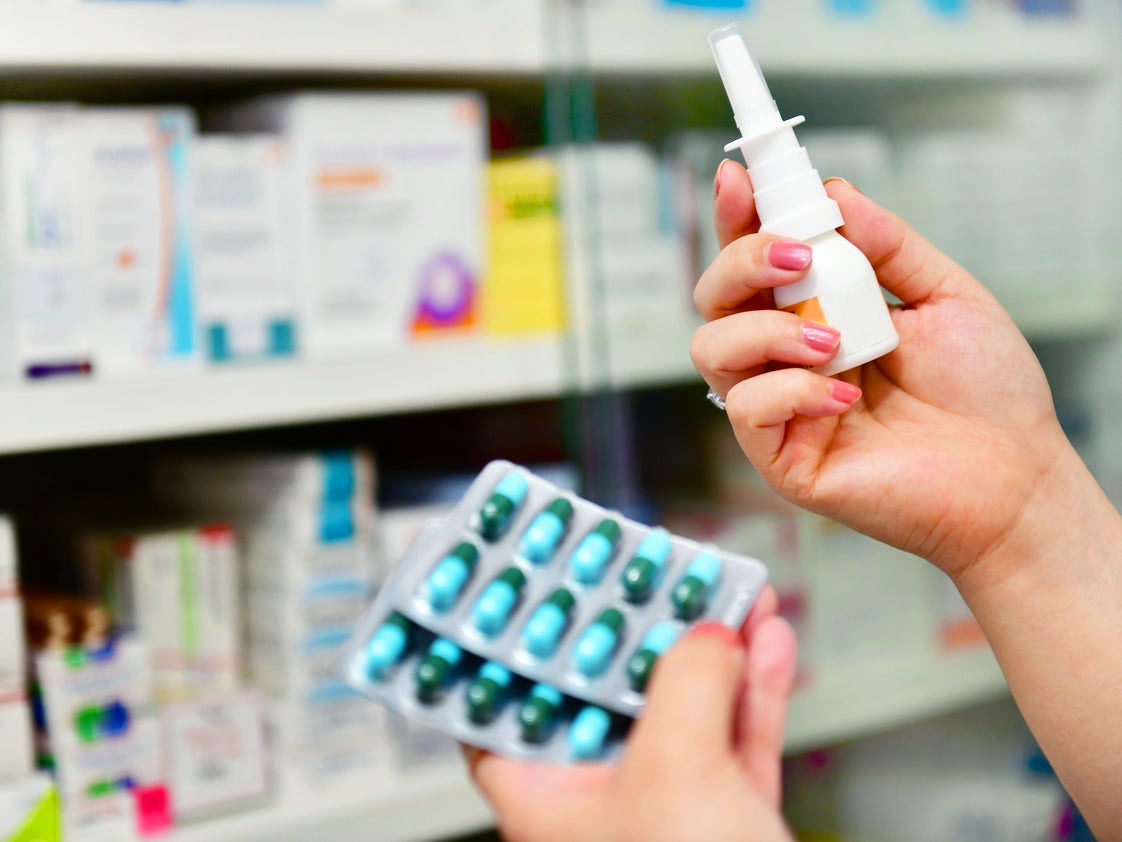The Independent's journalism is supported by our readers. When you purchase through links on our site, we may earn commission.
How a post-Brexit trade deal with the US could make life-saving drugs unaffordable for the NHS
The UK is going to be at a distinct disadvantage in this negotiation – desperate for a deal the US could happily live without

The fight over access to the life-changing cystic fibrosis medicine Orkambi is emblematic of the challenge facing the NHS from ever-higher drug prices, as patients fall into the yawning gap between what the NHS can afford, and the price the US drug company, Vertex, is demanding.
This week, the Health and Social Care Select Committee hauled all the parties – Vertex, NHS England, and NICE (the National Institute for Health and Care Excellence, the body that decides on the cost effectiveness of a medicine) – over the coals in a bid to resolve a dispute that has lasted over three years.
Orkambi is one of a new class of medicines – the first that treats the underlying causes of the disease. Thousands of children and young people in the UK could benefit, but at £104,000 per patient per year for life, it is priced far too high for the NHS.
The reason for the high price? The monopoly hold Vertex has on the market through its 20-year patents. In the face of Vertex’s greed while children die without access to the drug, a group of parents whose children need Orkambi has been calling for the government to use its power to break Vertex’s monopoly, allowing the NHS to buy a more affordable, generic version of the medicine – a move known as a “crown use licence” that could cut the price by £100,000 and save the NHS around £4bn over 10 years.
The government has said it does have the power to act but, when questioned by the committee, the NHS stuck to its line that it understands the call for a crown use licence, but that it is not its preferred solution. But MP Ben Bradshaw also peppered Vertex chief executive, Jeff Leiden, one of the best paid bosses in big pharma, with questions about Donald Trump’s efforts to force countries around the world – including the UK – to pay more for medicines under the ridiculous theory that such a move would free drug companies to cut their prices in the US.
Bradshaw was highlighting a real and growing threat to the safeguards and controls that protect the NHS from rapacious drug pricing by big pharma, one which could prevent us from using crown use licences and a whole raft of existing mechanisms that keep prices down and the health service afloat: a post-Brexit free trade agreement (FTA) with the US.
Last week the US trade representative’s office published their Brexit wishlist. As expected, it contained frankly scary demands to strip away safeguards that keep our food safe and (relatively) free from chemicals and cruelty. But flying largely under the radar until now has been the potential impact of a UK-US agreement on the NHS, and the affordability of medicines for our health service.
The seemingly deliberately boring text masks demands for changes sought by big pharma – the most profitable industry in the world, with the biggest lobby machine in DC. The US has for years used free trade agreements like TPP and TTIP to push for longer and more unbreakable monopolies on medicines. The more long-lasting a monopoly, the longer prices stay high. With the NHS already struggling to afford the eye-watering prices of new medicines, we need greater powers to break monopolies to protect public health – not make that more difficult.
The all powerful pharmaceutical trade body Phrma has argued that a whole range of mechanisms employed to control drug prices in other countries – including the UK – are in fact unfair actions designed to “artificially depress the market value of US innovative medicines”. NICE, which assesses the cost-effectiveness of medicines for the NHS, along with the voluntary government-industry agreement to cap NHS drug spending, and even the pooled procurement and negotiating power wielded by the NHS, could all be threatened by a US-UK free trade agreement.

But can we be confident the UK won’t bow to US pressure and trade the interests of NHS patients for a deal that will fuel profits for big pharma? Don’t be so sure. The UK is going to be at a distinct disadvantage in this negotiation – desperate for a deal the US could happily live without.
Last week seven big pharma CEOs were grilled in front of a Senate committee as anger over drug pricing bubbles over in the US. But rather than tackle the arguably corrupt practices and failing innovation model that drives the problem, President Trump is focused on exporting it and the UK seems to be one of his target markets.
No matter how you voted in the Brexit referendum, no one voted for this. If we want to stop the US helping big pharma to take even bigger chunks out of the NHS – and ensure children can access essential but overpriced medicines like Orkambi in the future – we’d better be prepared to fight.
Diarmaid McDonald has worked on access to medicines issues for over 10 years and is lead organiser of Just Treatment, a patient-led campaign seeking fair access to medicines on the NHS and reform of the pharmaceutical innovation system
Join our commenting forum
Join thought-provoking conversations, follow other Independent readers and see their replies
Comments